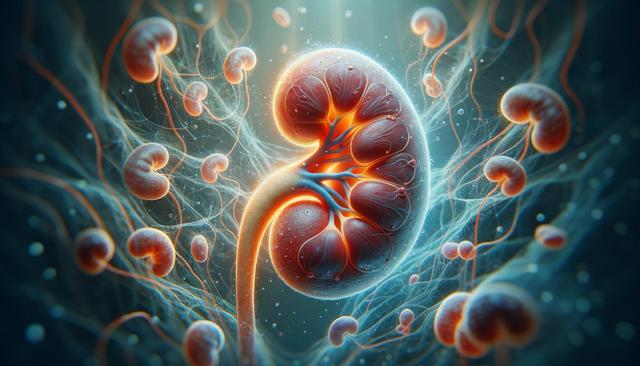The Importance of Kidney Function
Your kidneys are two bean-shaped organs located on either side of your spine, just below your rib cage. They filter waste and excess fluids from your blood, which are then excreted through urine. In addition to this crucial role, kidneys also help regulate blood pressure, produce red blood cells, and maintain electrolyte balance.
When kidney function starts to decline, the body begins to show subtle changes. Recognizing the early signs of kidney disease can be a key factor in preventing further deterioration. Common symptoms include fatigue, swelling in the ankles or feet, changes in urination patterns, and high blood pressure. These symptoms are often overlooked or attributed to other causes, which can delay diagnosis and treatment.
Understanding the significance of kidney health encourages individuals to pay closer attention to these warning signs and take proactive steps to maintain healthy kidneys throughout life.
Recognizing Early Signs of Kidney Disease
One of the challenges with kidney disease is that it often develops silently and gradually. Many people don’t realize they have a problem until it has progressed significantly. This makes identifying the early signs of kidney disease especially important.
Symptoms to watch for include:
- Persistent fatigue or low energy levels
- Swelling in the hands, legs, or face
- Changes in urine color, frequency, or smell
- Difficulty concentrating or mental fog
- Unexplained shortness of breath
Knowing how to know if your kidneys are failing can also involve understanding risk factors such as diabetes, high blood pressure, and a family history of kidney issues. If you suspect you may be at risk, it’s a good idea to consult with a healthcare provider for further evaluation.
How to Check Kidney Health at Home
While professional medical tests are the most reliable way to assess kidney function, there are a few ways to monitor potential issues from the comfort of your home. Learning how to check kidney health at home can provide early insights and prompt timely medical care.
Here are some simple methods:
- Keep track of your blood pressure regularly, as high blood pressure can affect kidney health.
- Monitor your urine for changes in color, foaminess, or frequency.
- Use at-home urine test strips that can check for protein or blood in the urine.
- Stay aware of how your body feels—persistent fatigue, swelling, or changes in appetite may signal a problem.
These checks don’t replace professional diagnosis but can serve as useful indicators for when to seek further evaluation.
Natural Ways to Improve Kidney Function
There are several natural approaches that may help support kidney health and enhance their function. While these methods are not a substitute for medical treatment, they can be an important part of a kidney-friendly lifestyle. Focusing on natural ways to improve kidney function involves dietary choices, lifestyle habits, and hydration.
Some practical tips include:
- Drink plenty of water to help flush out toxins.
- Eat a balanced diet rich in fruits, vegetables, and whole grains.
- Reduce sodium intake to prevent fluid retention and high blood pressure.
- Avoid excessive use of over-the-counter painkillers, which can strain the kidneys.
- Engage in regular physical activity to support overall health.
Some individuals also choose to buy kidney cleanse formula products designed to support kidney function. These typically contain herbs and natural ingredients, but it’s essential to research them carefully and consult a healthcare provider before starting any new supplement.
When to Seek Professional Help
While home monitoring and natural remedies are helpful, there are times when professional medical intervention is necessary. If you have persistent symptoms or risk factors, it’s important to get a comprehensive kidney function test. Blood tests and urine analyses can detect early issues that may not yet be causing noticeable symptoms.
Knowing how to know if your kidneys are failing involves understanding both your symptoms and your test results. A healthcare provider can interpret these indicators and recommend appropriate treatment or lifestyle changes. In some cases, early intervention can prevent the progression of kidney disease and protect long-term health.
It’s also wise to maintain regular checkups, especially if you have conditions like diabetes or hypertension. Early detection is key to managing kidney health effectively and avoiding more serious complications down the line.




Leave a Reply